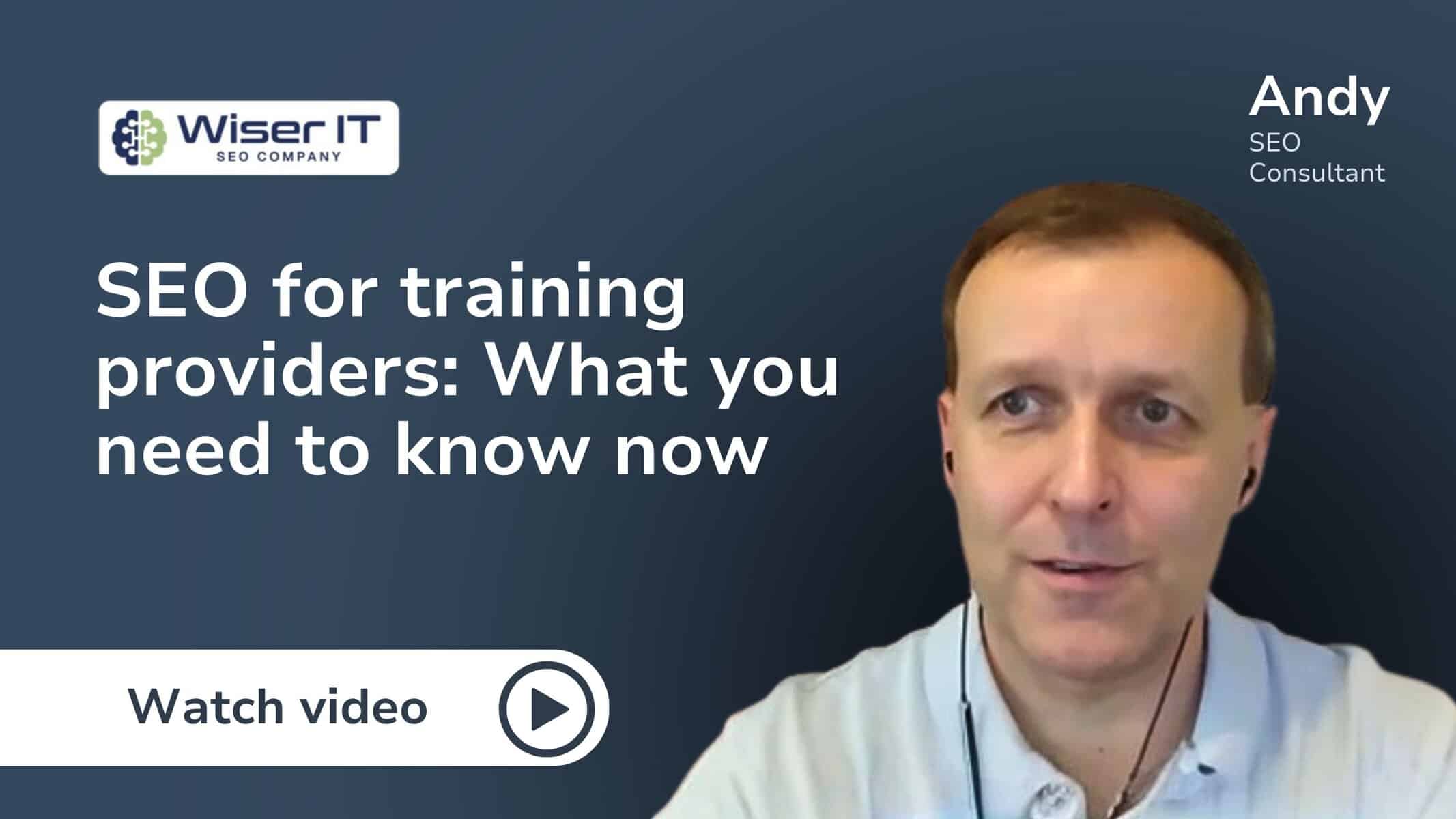To market an online course, you need to be strategic in your planning, creative in your execution, and proficient in your communication and customer service skills. Collect data on your course participants and targeted customers and use this to build an effective digital marketing strategy that creates buzz around your brand, course catalogue and upcoming events.
Start with picking a digital marketing strategy
There are many digital marketing strategies to pick from. You should always consider the size of your business, your goals and which products or services you offer. For instance, as a course and training provider you want to pick a digital marketing strategy that reflects the size and variety of your course catalogue. In addition, it is important to make a plan for how you want to implement the strategy and which marketing tactics you will implement in practice.
What is a digital marketing strategy?
A digital marketing strategy is a set of actions that is implemented online to reach a certain goal. Many businesses plan a marketing strategy and then implement it later, at a certain time and on a specific online channel, in order to increase revenue or improve customer relations.
Important steps before picking and implementing a digital marketing strategy
1. Do your research and set clear goals
In your present course catalogue, what works and what does not? Look at the courses you offer, the feedback you receive, and the trends over time to evaluate your current performance. You should also analyse it with a critical eye. Then it becomes much easier to set attainable goals. Course evaluation forms that you (hopefully) gather after each course will be of extreme value here!
In addition to looking inwards at your business to set goals, you can evaluate your performance by comparing yourself to competitors. What do they cover or offer that you do not? What do they do better than you? Are they savvy in social media communication or do they manage to engage their audience on LinkedIn?
2. Collect data on your target market
Who buys your courses? Define a typical customer and use them as a starting point for your digital marketing strategy. All data you have available in your training management system, like booking behaviour, preferences from evaluation forms, or delegate information will be valuable in this collection.
3. Ensure good customer relationships
Yes, you want to market your courses and find new leads. But before you can generate new leads, you must take care of existing customers – and even former leads. You should always thank former and current customers for making a purchase and collaborating together. As for previous leads or customers, it is smart to reach out to them to ask for feedback. This is also a great opportunity to inform them of new offers. This is valuable insight that you can use to get a better understanding of how to implement new and improve current lead generation strategies.

Discuss which marketing strategy is the best with your colleagues.
Strategies for marketing your course
When you are marketing your course, you want to get more leads. Lead generation is to attract and find potential customers, which is at the center of online marketing. In order to achieve this, you need to implement the right digital marketing strategy for your business. There are many to choose from, which is why we have made an overview of beginner, medium-level and advanced strategies you can implement.
Strategies for beginners
Reach out to old leads or customers
Maybe the manager at a company you talked to last autumn is ready to invest in your training offer today, and if not, it is a great opportunity to ask them what would make them reconsider it. You will potentially learn something about your course offer and implement changes that will increase the value of your course.
Pre-sell your course
By pre-selling your course, you sell the course before you have designed a plan for it. When you pre-sell it, you can get a better understanding of what your customers want. Therefore, you are better positioned to design a high-quality, productive course.
Tips! When you pre-sell your course, you should offer discounted prices or course bundles. This is a sure-fire tactic to attract customers.
Use your network and social media channels
Reach out to people in your network, either through email or LinkedIn. Your social media channels are also a great place to reach out to people. For example, you can use Instagram Stories to create buzz around a new course bundle.

Getting awareness around course on Instagram is a great marketing tool.
Medium-level strategies
Use testimonials
Ask customers about providing testimonials and implement them on your website. You can also use them to provide quotes and images that you can use in a social media or LinkedIn post.
Create interactive challenges to engage followers
Speaking of Facebook and LinkedIn; these are great arenas to engage with your audience. Organise challenges and generate engagement and attention when they respond to your challenge and update with results. An example could be …
Send emails to email list
Use your email list and send updates to former and current customers. Remember to make them eye-catching and include an incentive to sign up to the course. Discounts on courses or defined output of courses will always pique their interest.
Do PR campaign
Pitch a news story related to your course to the media. Remember that PR should always be unique and interesting, otherwise there is no real news value. Therefore, you should take advantage of the course and delegate data you have and analyse this to find a good story. Let this inspire you to frame your course company or offer in a creative way.
Partner up
Partner with local organisations or businesses where you both can benefit from a partnership. Let us say there is a big company that is in need of internal upskilling to reach critical KPIs. Then you can offer them a course bundle where they improve their skills in communication and leadership. In exchange for a customised bundle, they can recommend your training business to partners or other companies in the industry. Another tactic is to collaborate with a local organisation with limited financial resources, but a huge social media presence. It can get the course for a discounted price as well in turn for social media promotion. Their big online following, but limited economic funds, creates a good incentive for both of you to partner up.
Strategies for professionals
Use search engine optimisation (SEO)
Search engine optimisation is an efficient strategy to organically grow your online presence. Many people find services and products through Google and other search engines, which means that to be visible for said services and products, you organically attract new customers. The key is to rank on industry-specific keywords, which requires a fully realised SEO strategy, a fully optimised website and a helpful content universe. Learn the basics and what works right now in our on-demand SEO for training providers webinar here.
Create ebook
Create ebooks on topics and sell them or share them to attract readers. Then you gain potential customers who are genuinely interested in the topic, and attract potential customers who trust your expertise in the field.
Get on TV, radio or participate in speaking engagements
Traditional media like TV and radio are great channels for promotion. If you get involved in speaking engagement or other events, you can also expand up your ethos and passionately communicate with people about your course catalogue.

Choosing digital marketing strategy can be difficult, but it is so important.
Why should I spend time on creating or choosing a digital marketing strategy?
- Business insight: You get more information on every aspect of your business and industry, from audience and competitors to trends.
- Increased motivation: It feels motivating to get a better understanding of your business.
- Real data: You get access to data you can use to improve your course catalogue.
- Time and money efficient: It helps to increase Return of Investment (ROI).
- Communication: You get more insight into your customers and the opportunity to improve your relationship with them.
Take advantage of the marketing module in your TMS
If you are using the training management system by us in FrontCore, you get easy access to marketing and sales tools you can use to create engagement around your course. In addition to the benefit of doing marketing initiatives directly in the TMS system, you can create email campaigns and automatically link to booking forms. This makes it easy for you to keep track of campaign performance – and even easier for potential customers to complete the booking.
Create a plan for how you market your online course
No matter which digital marketing strategies you choose, you need to make a plan for how to market your business before, during and after the course. Without a plan for how to market your online course, it will be difficult to gain business insights, which are invaluable for improving and scaling your business. Therefore, I want to highlight some initiatives you should take when marketing your online courses.
Promotion before the course
Before you offer your course, you should pre-sell it. As I mentioned before, by pre-selling the course you gain valuable insight into which input your target audience or customers wants or expect from the course. You should of course provide a somewhat idea of the course, but it should not be fully realised. When you get information from your potential customers, you can then frame the course to directly target them. Use promotional tactics like social media posts, Google ads and professional website communication.
Promotion during the course
While the course is ongoing you should continue to promote on all your social channels, like Instagram and YouTube. Instagram is also a great platform to share behind the scenes images or videos of when your course is full and executed. You should also consider asking customers to share on their channels and tag you, or ask them to repost your social media posts. You can even create videos and post them on YouTube and your blog that is linked to your website.
In addition to this, you should build your email list as you go. Offer former and current customers discounts and bundles of courses that are tailored to them. Think of exciting and eye-catching initiatives that will attract new customers. You can even collaborate with instructors to create specifically designed campaigns for your target audience.
Promotion after your course
It is important to note that you should always add testimonials to your site. Ask customers and delegates for feedback. When leads and new customers can see what and how you have helped other businesses in the same circumstances, the likelihood of them also picking your services increases. This will also improve your sales funnel. A sales funnel is a way of guiding potential customers through your site and course offer. Implement the digital marketing strategies of your choice, and be consistent with how you guide people to your sign up pages, whether it is from a social media post or an email offer that converts free users to paying customers.
Pick a digital marketing strategy and implement it
Start small and choose two or three digital marketing strategies to implement. It takes time to implement them, test them and see results from implementing them. Digital marketing strategies also vary in price, outreach potential and purpose. That is why it pays off to implement a few of them at a time, instead of doing it all at once. Then you can see how they work to engage your target audience and how it improves your conversion rate. Additionally, you can get a better understanding of how they work together and which combination of marketing strategies benefits your training business the most.
Did you like this article? Don't forget to share it:







0 Comments